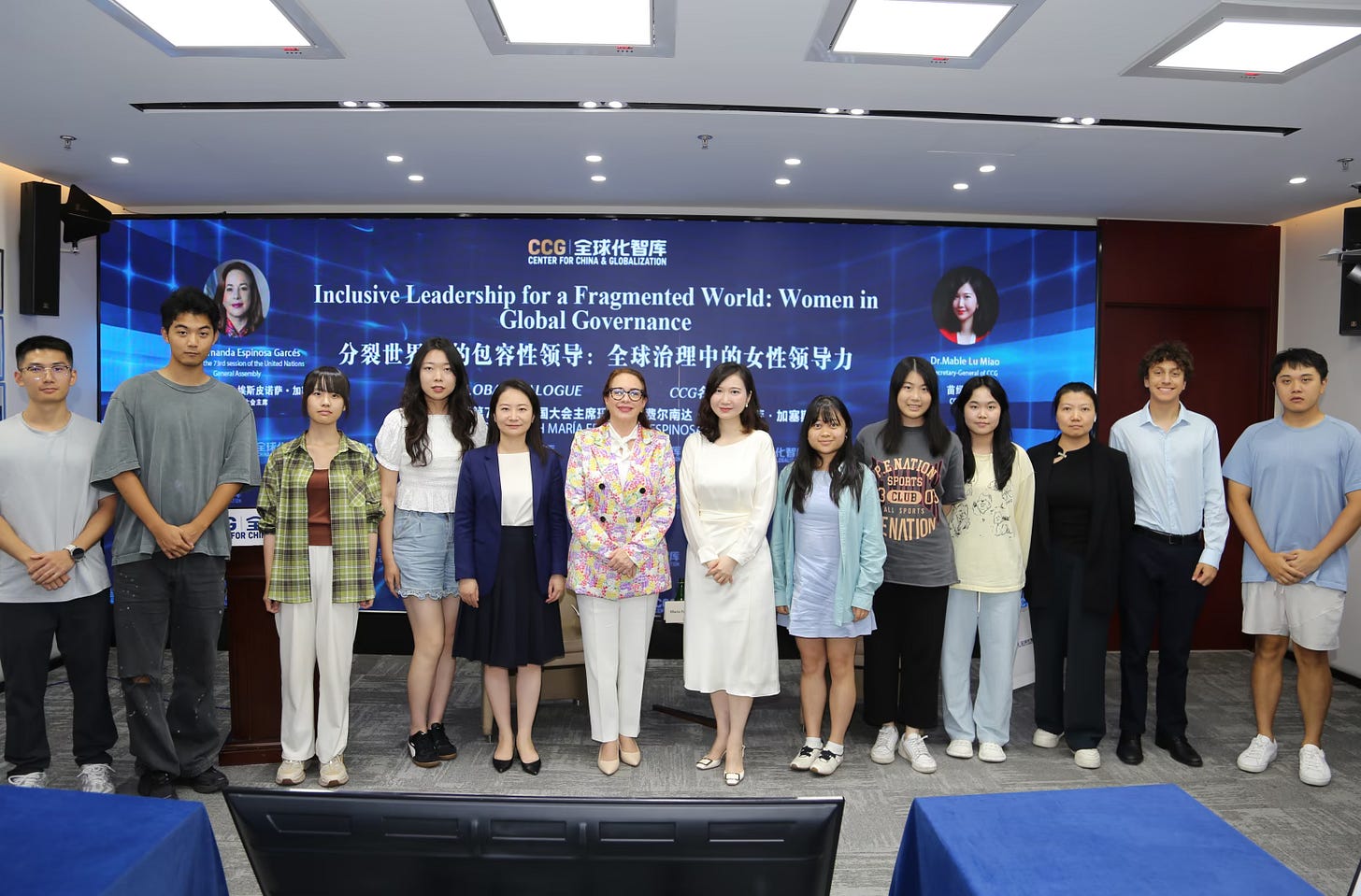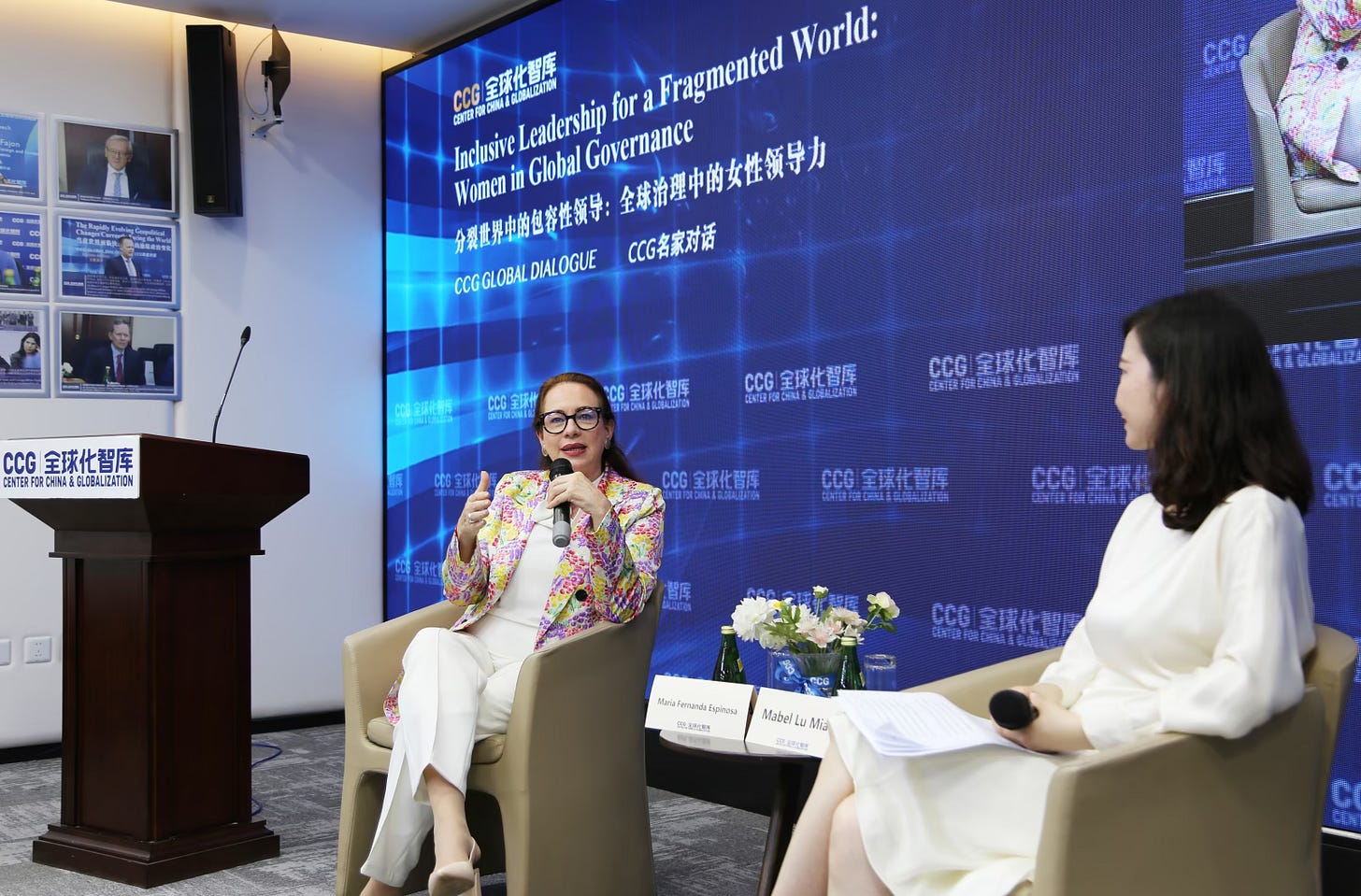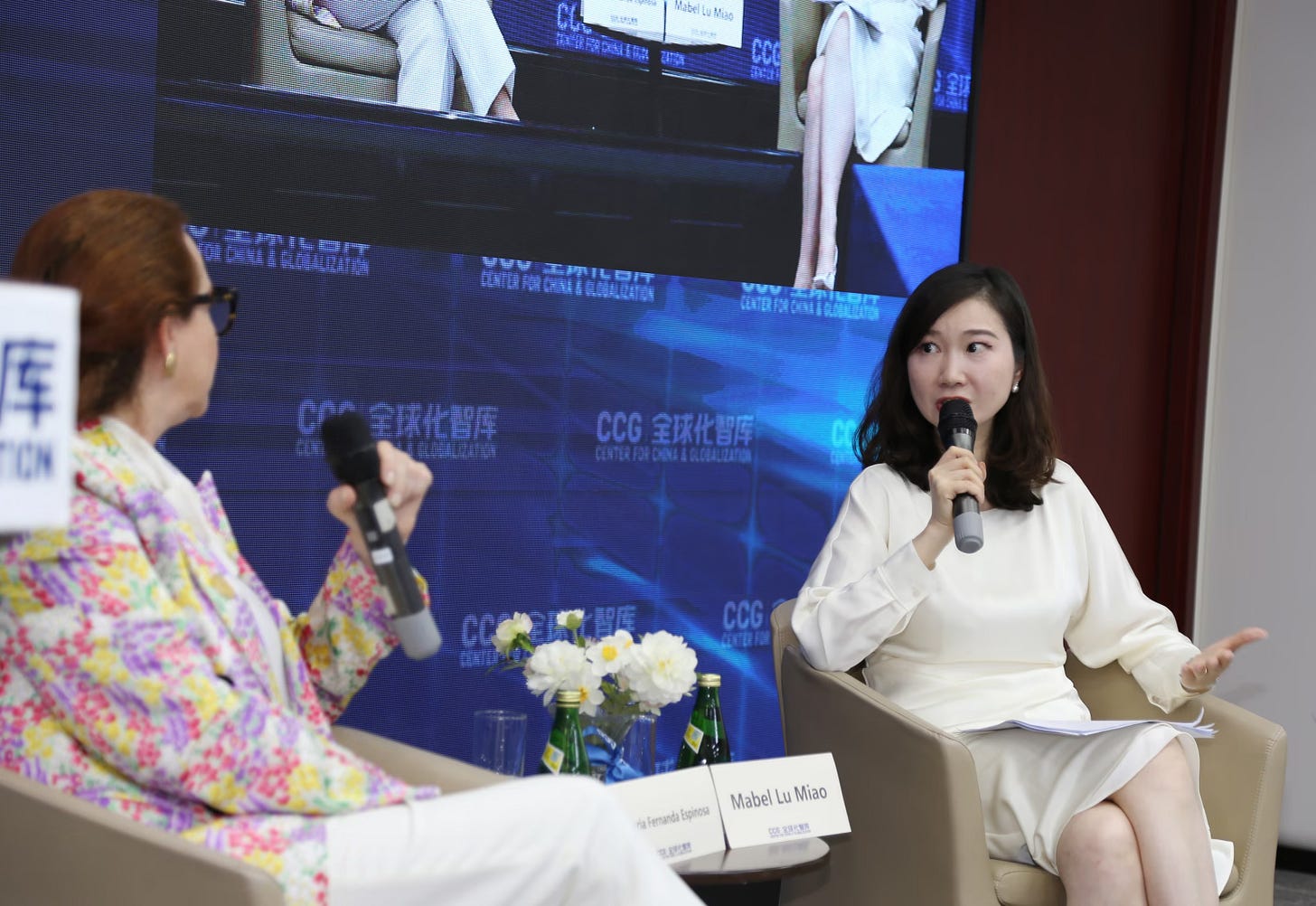Former UN General Assembly President Espinosa Garcés visits CCG
for dialogue with CCG Secretary-General Mabel Lu Miao on women’s leadership in global governance.
Espinosa Garcés, President of the 73rd United Nations General Assembly and former Minister of Foreign Affairs of Ecuador, visited the Centre for China and Globalisation (CCG) on July 25, 2025, for a dialogue with CCG Secretary-General Mabel Lu Miao.
CCG broadcast the dialogue online, and a video recording remains available on CCG’s official WeChat blog. The recording will also be uploaded to CCG’s YouTube channel, and a full transcript will be published at a later date.
During the conversation, themed “Inclusive Leadership for a Fragmented World: Women in Global Governance,” Espinosa Garcés discussed her experiences and perspectives on global leadership and the role of women in multilateral institutions.
Espinosa Garcés said the UN and other international bodies must adapt to a “polycentric” and “multipolar” world, emphasising that “what we are experiencing is high multipolarity, but low multilateralism.” She warned that today’s institutions, largely designed after World War II, are struggling to address new threats such as climate change, technological disruption, and inequality. She called for reforms in UN decision-making and financing, as well as stronger accountability, to deliver for the people as was promised in the UN Charter.
Both speakers discussed the underrepresentation of women in international leadership. Espinosa Garcés, now Executive Director of Global Women Leaders (GWL) Voices, cited research showing that only 7% of UN ambassadors since 1947 have been women. “What you see is a chronic underrepresentation of women in positions of power in the international system,” she said.
Miao pointed to China’s progress in women’s education—women make up over 45% of the country’s scientific and technical workforce and 50.6% of all graduate students—but acknowledged ongoing gaps in senior roles. She also recalled the legacy of the Beijing Declaration 30 years ago and noted that China will soon host another major international women’s summit.
On environmental governance, Espinosa Garcés urged a more systemic, ecosystem-based approach instead of fragmented, issue-based treaties. She praised China’s well-organised green transition, saying, “They act as they say,” and cited its leadership in multilateral climate efforts. Miao agreed, highlighting recent China-EU cooperation on climate and renewable energy.
Addressing questions from the audience, Espinosa Garcés praised China’s “spirit of true cooperation and generosity” and commented on the U.S. withdrawal from international organisations like UNESCO, noting that the multilateral system must remain resilient and be prepared to process the right to dissent.
Espinosa Garcés also encouraged young women to pursue leadership roles and “never shy away of opportunity and really fight for it,” sharing that her own appointment as defence minister in Ecuador was seen as unconventional for a woman.
Espinosa Garcés has served Ecuador as Minister of Foreign Affairs (twice), Minister of National Defence, and Coordinating Minister of Natural and Cultural Heritage. She was Chair of the Group of 77 and China until January 2018, and also served as Chair of the Andean Community.
She was a chief negotiator at the sixteenth and seventeenth Conferences of the Parties of the United Nations Framework Convention on Climate Change and at the Rio+20 United Nations Conference on Sustainable Development, where she facilitated the adoption of key elements in the outcome document entitled “The future we want”.
As Minister of National Defence of Ecuador, Espinosa Garcés participated in debates on women, peace and security, and promoted the creation of the South American Defence School of the Union of South American Nations, among other initiatives.
In 2008, she was the first woman to become Permanent Representative of Ecuador to the United Nations in New York. During that posting, she co-facilitated the Working Group on the revitalisation of the work of the General Assembly at its sixty-third session.






